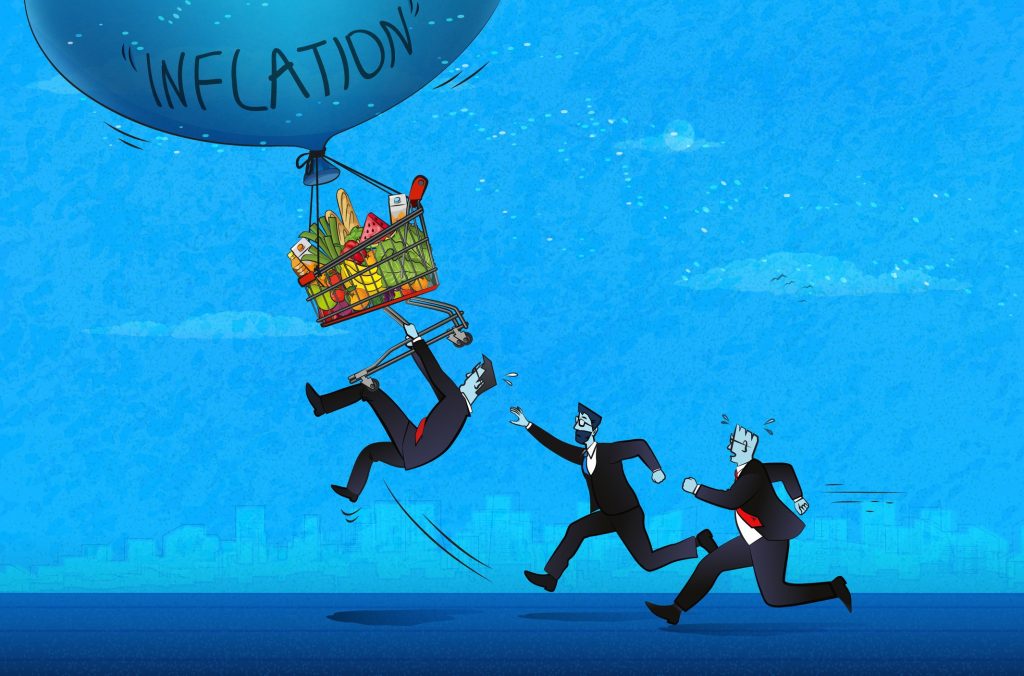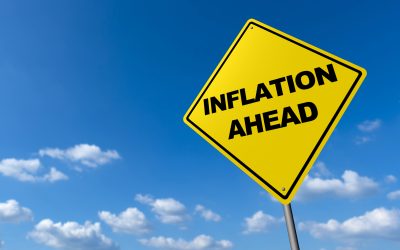
Did you ever hear your parents or grandparents talk about how much less everything used to cost? They weren’t exaggerating – in 1960, a gallon of conventional whole milk was 31 cents, and today it’s $3.77 on average.[1] A few dollars might not seem like much, but that’s a 1,116% increase. You’ve likely noticed higher prices recently, even if they aren’t 1,116% higher. Unfortunately, you can’t stop inflation. But, you can prepare by working to protect your money from inflation.
How Much is Inflation Costing You?
In March alone, U.S. gas prices rose by more than 18%. Year-over-year, the price of gas soared by 48%. Energy costs increased 32% over the last year, while food prices rose by 8.8%. It was the biggest increase in food prices since 1981.[2] You’re likely wondering how you can work to protect your money from inflation. Cutting back on spending isn’t always an option – you still need to get where you’re going in your car and buy food. The Federal Reserve is raising interest rates in an effort to curb inflation, but no one knows when it will work. In a time of rising interest rates and high inflation, know how you will respond.
Prepare for Inflation
While there is no single “magic bullet” cure for inflation, there are many strategies available. One potential strategy is buying Series I Savings Bonds. These are bonds issued by the U.S. government that are adjusted for inflation. The interest rate is a combination of a fixed rate that stays the same for the life of the bond and an inflation rate that is set twice a year. They are currently paying a 9.6% interest rate through October.[3]
The duration of these bonds can range from one year to 30 years, but you will forfeit the last three months of interest if you sell them before five years. Series I Savings Bonds are considered very low risk and are not subject to state or local taxes. Interest is tax-free if used to pay for qualified educational expenses.[4] However, you can only buy up to $10,000 per year.[5]
A Multi-Strategy Approach to Inflation
Beyond Series I Savings Bonds, there are many other investment options if you are looking to help protect your money from inflation. Not every strategy will be right for you, and it’s hard to know which ones will be. We can look at your unique financial situation and help you consider strategies that fit your needs. Our full-time job is helping people protect and grow their money. Sign up for a time to come speak to us about your financial concerns so that we can get started on a plan.
[2] https://www.cnn.com/2022/04/12/economy/consumer-price-inflation-march/index.html
[3] https://finance.yahoo.com/news/series-savings-bond-help-beat-191349771.html
[4] https://www.thebalance.com/tax-advantages-of-series-i-savings-bonds-357552#:~:text=Series%20I%20savings%20bonds%20are%20not%20subject%20to%20state%20or,to%20own%20an%20ordinary%20bond.
[5] https://finance.yahoo.com/news/series-savings-bond-help-beat-191349771.html



